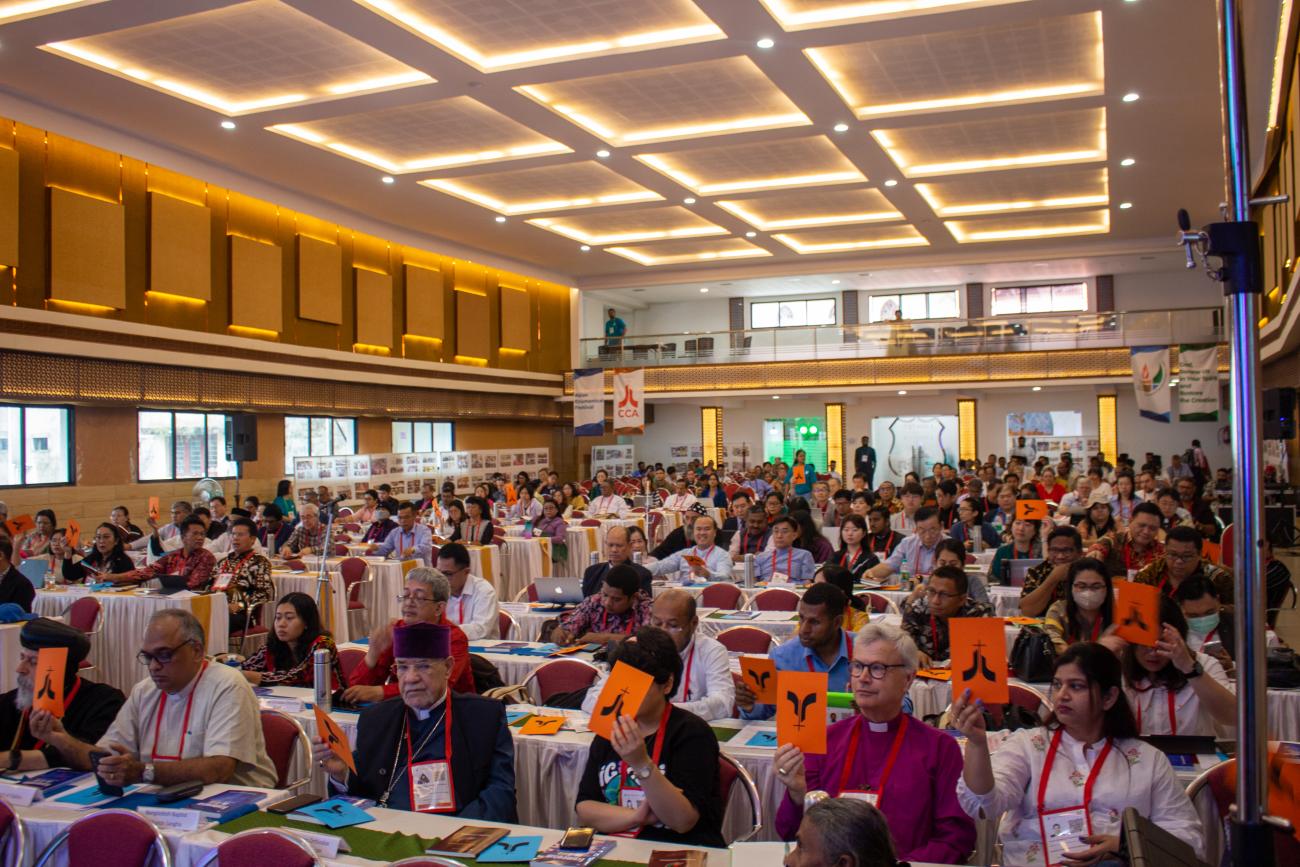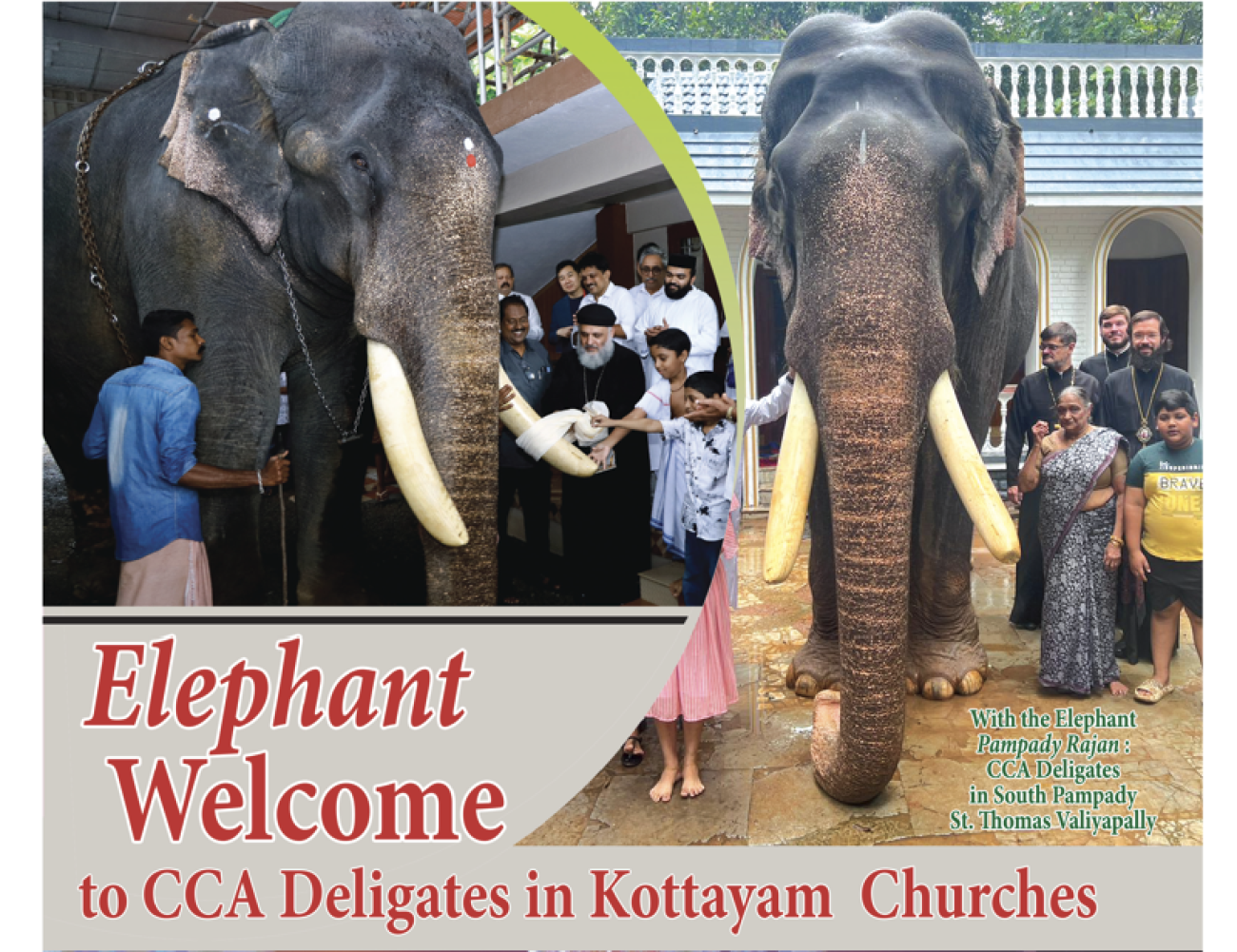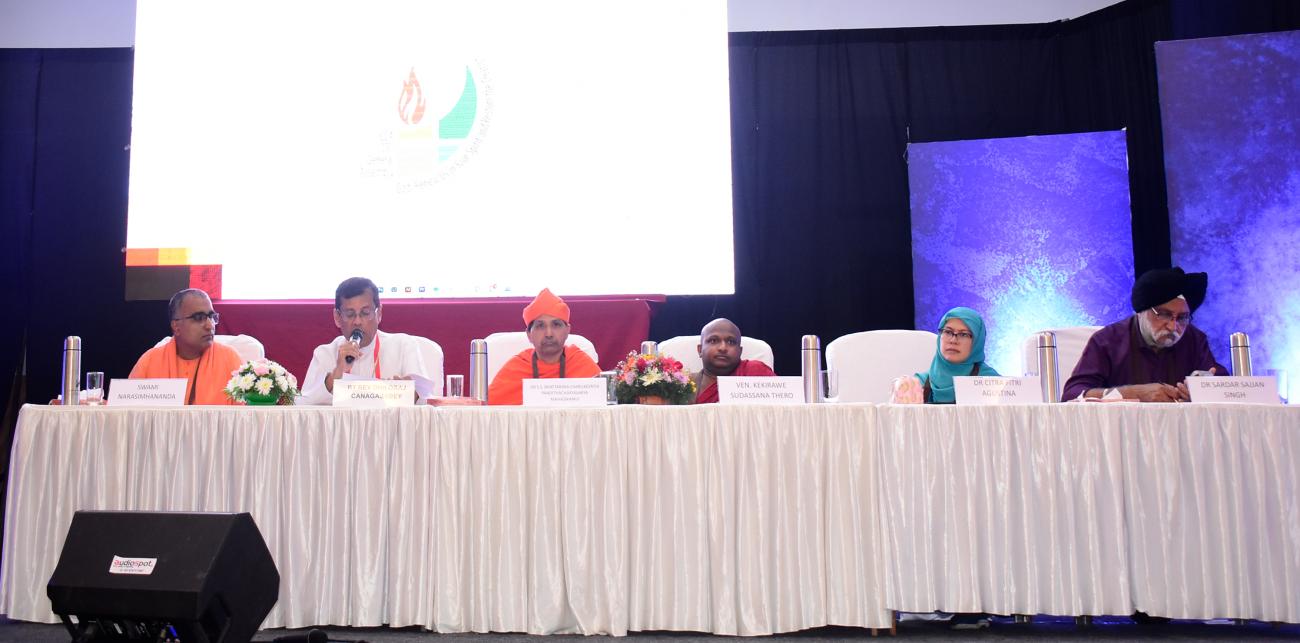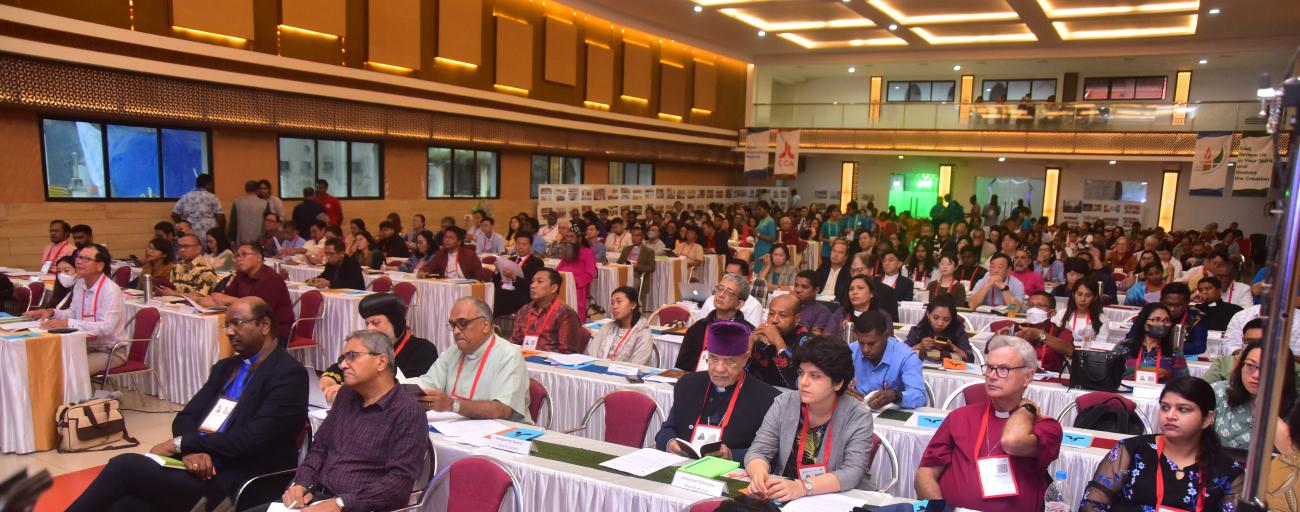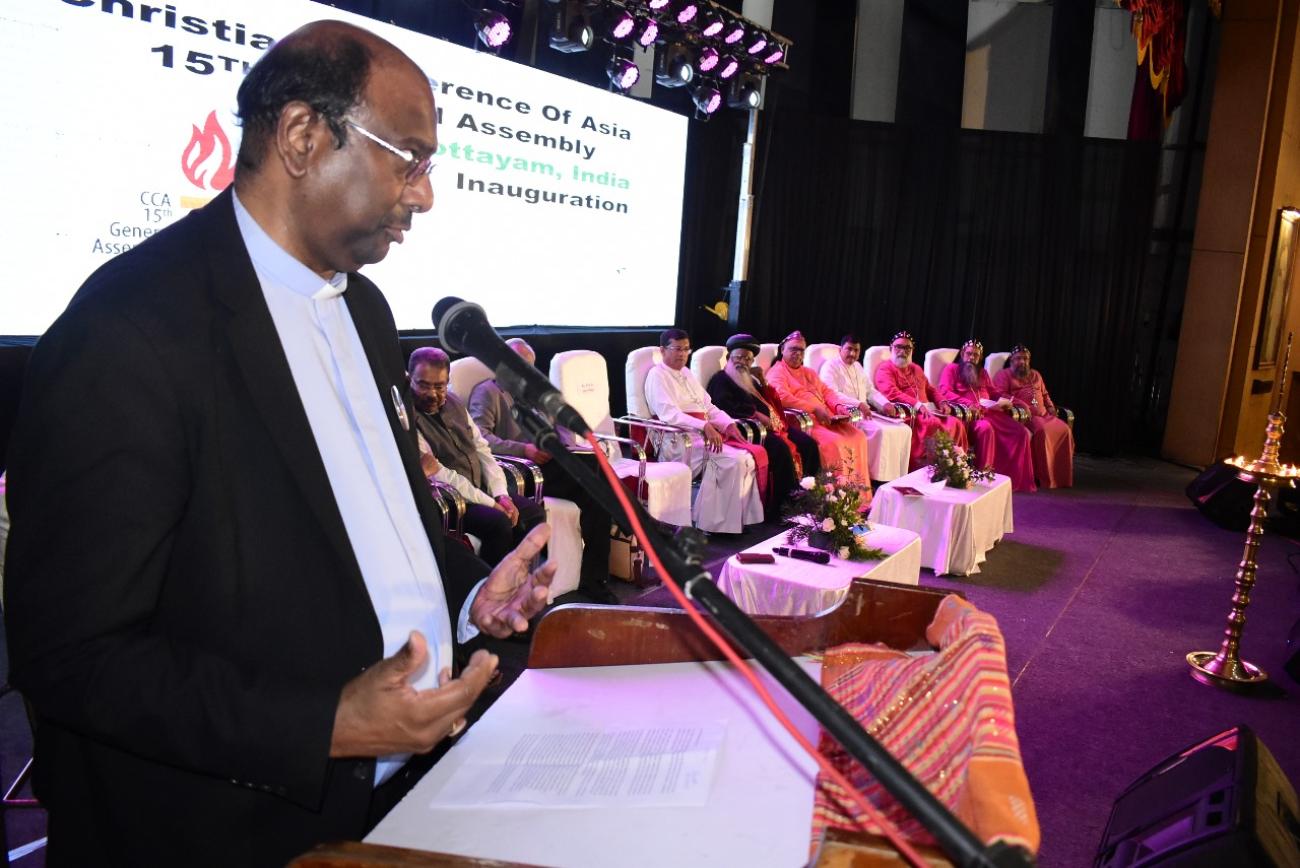Vistas of Peace: Dealing with a Controversial Novel and Film

Will I lose faith because of what a novel and a film say about God or my religion? What kind of faith do I have if it is easily shaken by a book or a film?
I read Dan Brown's The Da Vinci Code like any novel. It did not shock or surprise me because I have read other publications before that tried to depict Jesus' special relationship with Mary of Magdala. A friend lent me a smaller novel that focused on that. Unfortunately, I cannot even remember its title and author. It obviously did not hit the headlines or create any stir, and there were no copyright issues around it. While preparing to teach feminist theologies at a seminary in the Philippines in 2000, I came across an interesting master's thesis by Ramon K. Jusino. Available in www.beloveddisciple.org, the essay uses extra-biblical resources as well as works of renowned Bible scholar Raymond Brown to support the theory that the "beloved disciple" constantly mentioned in the gospel according to John is none other than Mary of Magdala, who is also the author of the fourth gospel. The essay echoes what I learned in seminary: that nowhere in the Bible is Mary of Magdala named a whore or prostitute, which was a mere conclusion made by early church fathers based on the description that she was demon-possessed. My students were initially shocked by such a theory but by opening themselves to Jusino's arguments, we ended up having a healthy dialogue.
More than the debate between fact and fiction, I think that one disturbing thing about Dan Brown's "The Da Vinci Code" is its underpinning critique of religion: 'Every religion describes God through metaphor, allegory and exaggeration, from the early Egyptians through modern Sunday school. Metaphors are a way to process the unprocessible. The problems arise when we begin to believe literally in our own metaphors' (p. 451). Come to think of it -- this is a good reminder against the human tendency to idolize our metaphors for and images of God, our doctrines and theologies about God that may actually replace Godself! Additionally, religions have a fundamentalist tendency to cling to literal understandings of scriptures that make them normative for all times and all contexts. These, as we all know, have led to much hate and violence.
Just as Dan Brown's novel is causing a stir, the discovery of the Gospel according to Judas has also come to light. Short of the number 80 that is mentioned in the novel, I remember learning from my Bible professors that there were many gospels that were written at that time. Even the four gospels in the Bible already indicate to us the diverse voices of the Christian communities that emerged as a result of the impact of the life of a man named Jesus who clearly demonstrated his divinity by living his life in accordance to God's will for fullness of life for all.
What is my response as a Christian to such a "disturbing" novel? First, I affirm that God is much bigger than what I have come to know. Likewise, God is much bigger than what Dan Brown describes or what my religion teaches. Second, I continue to uphold the spirit of the gospel more than the orthodoxy of doctrines. Doctrines develop as believers try to make sense of their faith and respond to questions and challenges. But I believe that the Spirit of God continues to inspire people today especially in the wake of new realities and challenges in life. We should not suppress new lessons and new insights in response to new challenges in the name of orthodoxy. Third, as one grounded in pluralist thinking, I must be open and willing to listen to the diverse voices both within and without the scriptures. God's spirit continues to work in mysterious ways. We should not stifle those different voices for they may be carrying something that would help us learn and grow. Fourth, I affirm that if faith is based on our life-experience with God (and, for Christians, through our relationship with Christ Jesus), it should be able to withstand and grow in spite of all the challenges. Real faith is after all our life-response to the God who loves us first, not because of what a book, author, film producer, or teacher tells us what to believe in.
My friend, Norma Dollaga from the Philippines, shared her own reflections on The Da Vinci Code:
"Would one lose faith after reading the book and viewing the film? Will it have an effect on our faith and on our church? Faith is an eternal gift. How do we nourish this faith? Loving our neighbor, feeding the hungry, clothing the naked, welcoming the strangers, visiting the prisoners and offering one's life for the sake of others are the lessons I learned in my Sunday School days. These are the essential things I learned in my church. Details about historical facts, latest theological discourses, and discovering new revelations about the Scripture are good things to know. But not necessarily the most important things in our faith journey. If they would assist us in making this faith more relevant, make us more humane, generous, righteous, just and wise, then let us welcome them with gratitude in our hearts. If they would help us to affirm and commit our lives in the missionary imperative of proclaiming the truth and living out the gospel of justice and peace, then let us open our hearts and collectively as a church, be inspired by them."
Dear friends, since God so loved us, we also ought to love one another. [1 John 4:11]
"Vistas of Peace" are occasional reflections produced by the
Faith, Mission and Unity Program Area of the Christian Conference of Asia.


